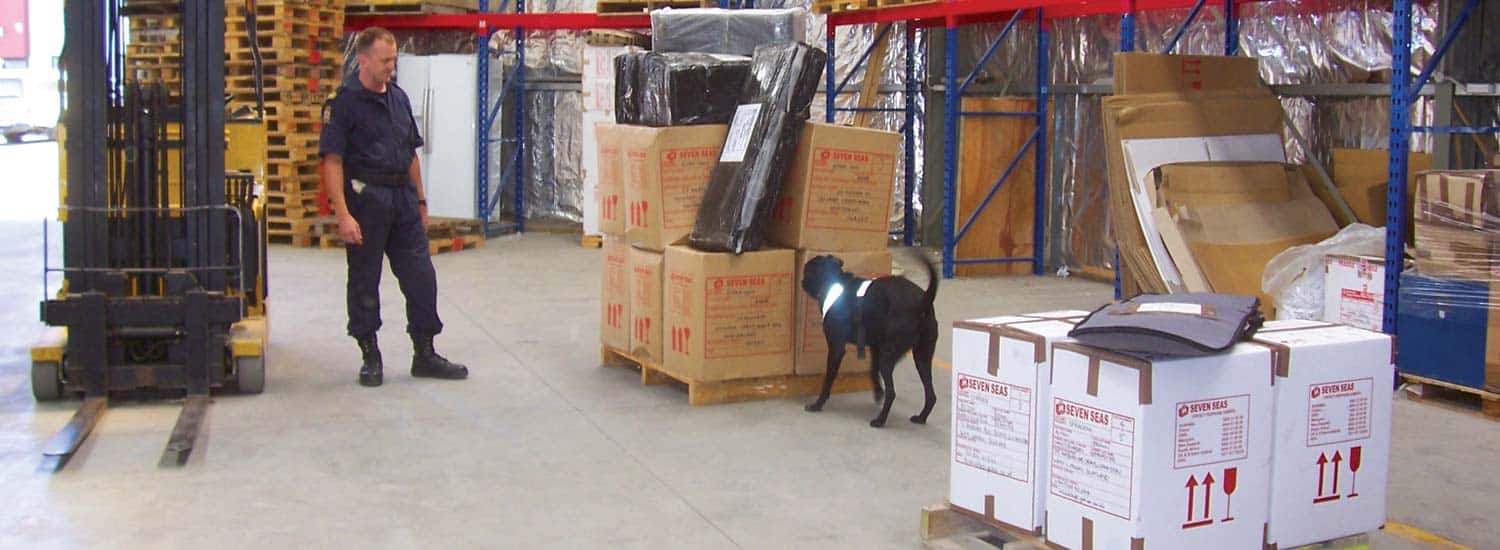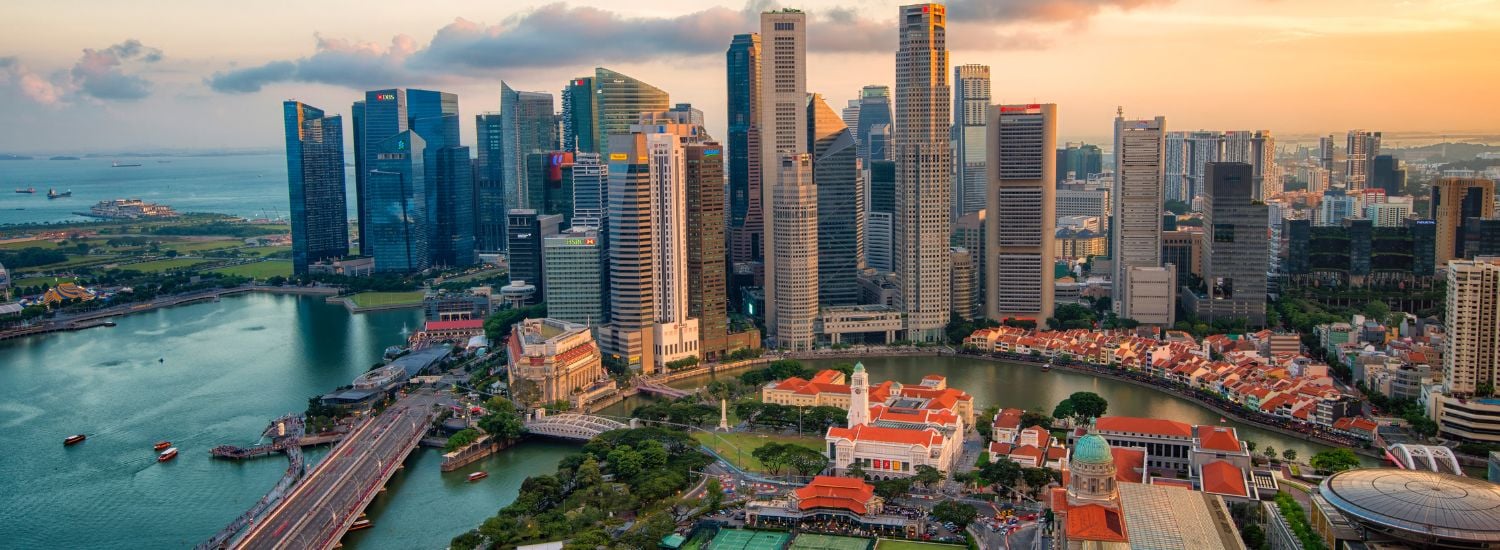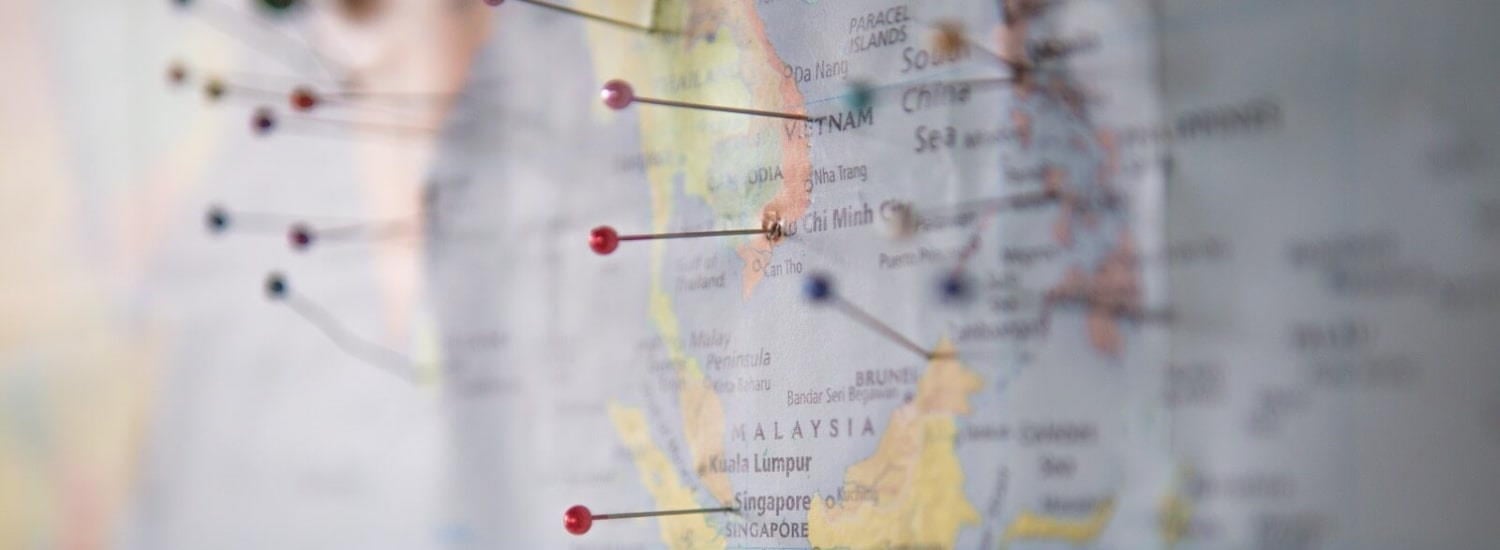Before packing, check this list of items prohibited from entering a particular country or region.
Key takeaways
- Singapore is a safe country to live in, thanks to the strict laws the country's government enforces, a strong sense of community, and a focus on keeping the city clean and tidy.
- Singapore is a democratic country. However, the People's Action Party (PAP) has governed for over six decades, and other political parties struggle to gain ground.
- The water in Singapore is safe to drink, as the city-state has recently invested heavily in its water infrastructure, including dams and underground drainage systems.
Singapore also boasts one of the lowest rates of corruption in the world.
Is Singapore safe?
Singapore is safe, in fact, it's the fifth safest country in the world according to the Global Peace Index (GPI) 2024, offering residents and tourists a secure environment to live and work. The GPI ranks worldwide nations based on internal and external peace, stability, and safety levels, using a score of 1 to 5, with 1 being the highest.
Singapore, with an impressive overall score of 1.34, ranks notably high for the following:
- Perceived criminality in society: 1.3
- Homicides: 1.059
- Public access to weapons: 1
- Internal conflicts: 1
- Political instability: 1.125
- Neighbouring country relations: 1
The city-state's low crime rates result from its strict laws, swift law enforcement and a strong sense of community. Violent crime is rare, and petty crimes such as pickpocketing are infrequent, especially compared to other major global cities. The government has implemented numerous safety measures, including vowing to increase surveillance cameras in public areas from 90,000 to 200,000 by 2030 and improving the streets to be well-lit.
Singapore also boasts one of the lowest rates of corruption in the world. In 2023, the highly respected Transparency International Corruption Perceptions Index (TI-CPI) ranked Singapore as the fifth least corrupt country in the world, the only Asian nation to make the top 10. The TI-CPI measures public sector corruption based on expert views, such as NGO representatives and academics, and business surveys.
![]()
Singapore crime rates
The Singapore crime rates in the diagram below are from Numbeo's Crime Index. The data is derived from surveys in which Singaporeans are asked to rank their concerns about specific crimes, perceived safety, and general perception of crime levels, with numbers under 20 considered very low and those exceeding 80 considered very high.
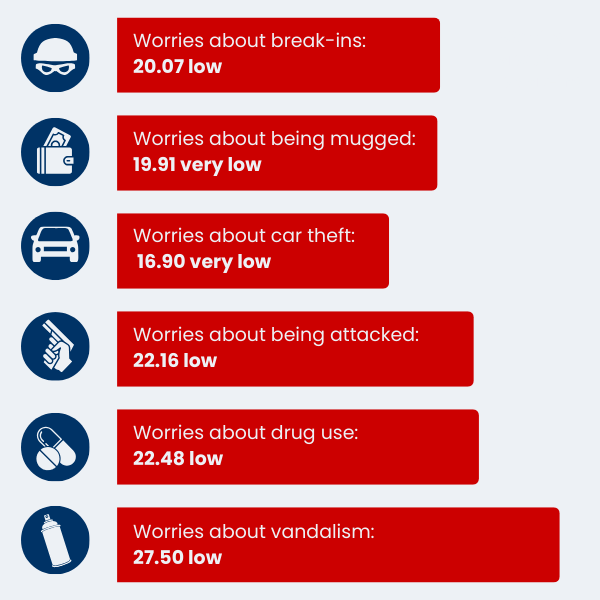
Is Singapore friendly to foreigners?
Singapore is generally friendly to foreigners. The city-state embraces its multicultural environment, with nearly half the population being foreign-born. Expats and visitors can enjoy a high standard of living, a safe country to call home and world-class public services.
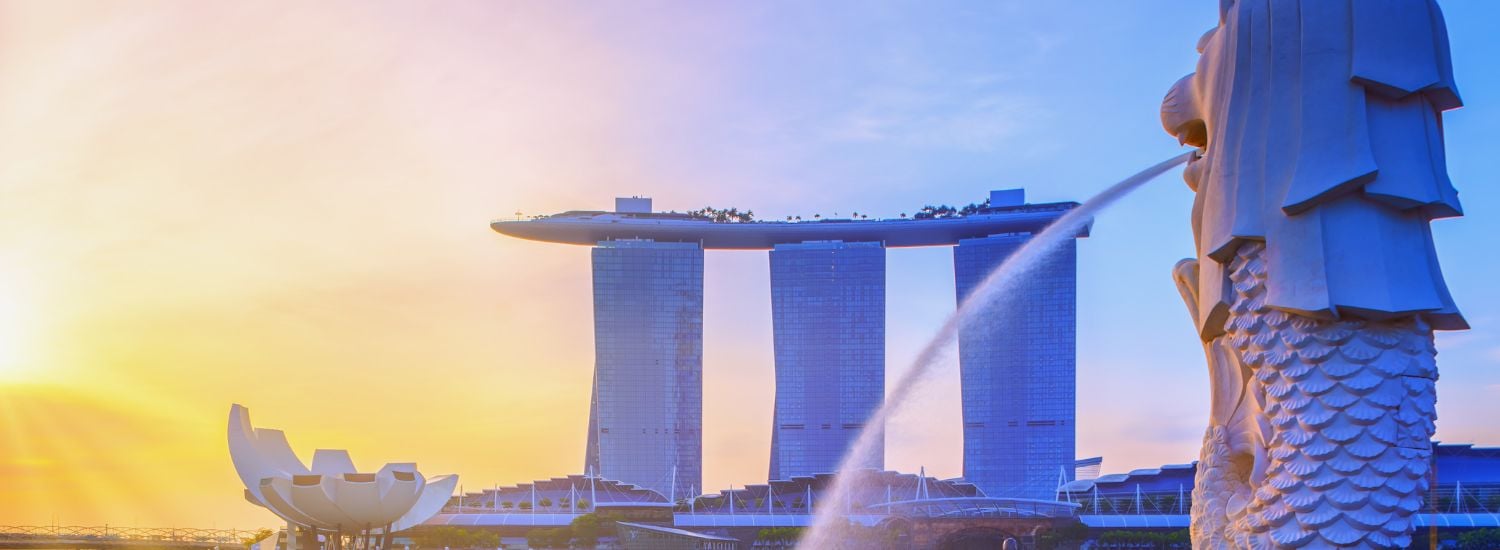
Pros and cons of living in Singapore
From students and professionals to families and retirees, living in Singapore is a dream come true for many, thanks to gorgeous year-long weather, efficient infrastructure and diverse cultures. However, nowhere is perfect. So, here are some advantages and challenges to consider before deciding to move to The Lion City:

High standard of education:
Singapore is known for its top-performing education, with excellent public and private schooling options. Additionally, the National University of Singapore (NUS) and Nanyang Technological University (NTU) both placed in the top 15 of the 2024 QS World University Ranking.
Innovative green spaces:
The city-state is famous for its well-maintained public spaces, such as Gardens by the Bay, and its commitment to environmental sustainability. Numerous parks and green initiatives are integrated into Singapore's urban planning, and the government plans to double the number of parks by 2030.
Trusted public safety measures:
Singapore has a reputation for being exceptionally safe due to strictly enforced laws and excellent health and safety standards.
Strategic travel location:
The Little Red Dot serves as a gateway to many nearby Southeast Asian countries, such as Malaysia, Indonesia, and Thailand. Plus, Changi, the country's well-connected, modern airport, provides frequent flights, making it ideal for travellers.

Limited natural landscapes:
Despite the abundance of green spaces, Singapore's compact size and high population limit the availability of natural areas like forests and mountains — a potential downside for those who regularly enjoy outdoor sports and recreation.
Career burnout:
Singaporeans are ambitious and hardworking people. While this is advantageous for the economy, it can lead to long working hours and stress, making maintaining a healthy work-life balance challenging.
Cultural adjustment:
The city-state's unique multicultural blend of traditions, rules, and societal norms means acclimatisation for newcomers can take time, especially if they come from less structured or more relaxed environments.
Pet lovers, beware:
Finding pet-friendly rental accommodation in Singapore can be difficult, with strict regulations on keeping animals. Also, many public spaces, including nature reserves, public transport and most places where food is sold, do not allow pets.
How many people live in Singapore?
Six million people live in Singapore, including citizens, permanent residents and expatriates, according to the latest government estimates. Despite its compact size, the city-state is known for its efficient urban planning, which helps manage the large population.
The country's growth has been influenced by immigration, with around 42% of Singapore's population being foreign-born. Thanks to advanced surveillance systems, a robust legal framework and excellent public services, the country effectively manages safety and security for its residents despite being one of the most densely populated places in the world.
Is Singapore a good place to live?
Singapore is a good place to live thanks to its clean environment, safe streets and tropical climate. The city-state is also known for its public compliance, which helps maintain low crime rates, efficient infrastructure (including well-integrated public transport), and plentiful jobs for skilled professionals, managers, executives and technicians.
Plus, as a multicultural city, residents enjoy a unique blend of influences from Chinese, Indian, Malay and British cultures, which is evident in everything from architecture to the culinary scene.
In contrast, the ever-present humidity can take some time to adjust to, as can the county's strict laws, especially if you're arriving from a nation with less restrictive controls from police and officials. Plus, the cost of living in Singapore is high, especially in terms of housing, dining out, car ownership, private medical coverage and groceries.
Is Singapore a democracy?
Singapore is a democracy, but its political system operates under tight controls. Elections are held every five years, with most votes going to the three main political parties: the People's Action Party (PAP), the Workers' Party (WP) and the Progress Singapore Party (PSP). However, the PAP has governed for over six decades since its first electoral victory in 1959, making it the longest-uninterrupted government among modern parliamentary democracies.
The PAP maintains strict authority over many aspects of society, including the media and public demonstrations. Additionally, public criticism of the government is often frowned upon, especially by foreigners. The WP and PSP face considerable challenges in gaining ground, with a vote share of just 10-11% each in the 2020 election, compared to the PAP's 61 %, although this has slid from 70% in 2015.


Singapore life expectancy
Often cited as the sixth blue zone country, Singapore has one of the highest life expectancies in the world for men and women combined at 86.7 years. The city-state's excellent healthcare, safe streets, forward-thinking public health policies and high living standards form the basis of the estimates.
Residents benefit from compulsory subsidised medical insurance, Medisave, which covers essential medical services, such as hospitalisation, surgery and some outpatient treatments. Strict government regulations on smoking, including bans in public areas like buildings and bus stops and limits on alcohol consumption, further encourage a healthy environment for its citizens.
Other measures by the Singapore government designed to boost life expectancy:
- Preventive healthcare measures to detect diseases early.
- Regular health screenings.
- Programmes designed to keep older people physically active and socially engaged.
- A clean environment.
- High public sanitation standards.
Singapore has invested heavily in its water infrastructure...
Can you drink tap water in Singapore?
You can drink tap water in Singapore. It meets the strict standards set by the country's regulations and aligns with the World Health Organisation (WHO) guidelines. Water quality is carefully monitored via extensive monitoring, with over half a million tests conducted yearly to ensure cleanliness. These tests examine physical, organic, inorganic, chemical and biological factors. The public does not need to do any extra filtering before drinking.
Occasionally, tap water may appear discoloured due to minerals, but this is not a health concern. The Public Utilities Board (PUB), Singapore's National Water Agency, manages the supply to ensure it remains drinkable and investigates water clarity or appearance issues.
Singapore has invested heavily in its water infrastructure, including dams and underground drainage systems. The country's sustainable approach includes desalination and recycled water. NEWater is a highly purified form of recycled water, treated through advanced filtration and ultraviolet disinfection, making it exceptionally clean and safe for consumption.
Unlike some neighbouring Southeast Asian countries, it is safe and convenient for locals and visitors to refill bottles and stay hydrated without relying on bottled water. Given Singapore's humid climate, drinking plenty of water throughout the day is highly recommended.
